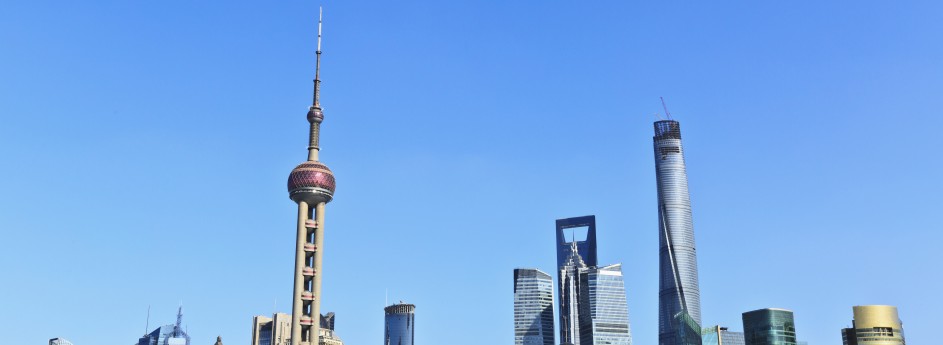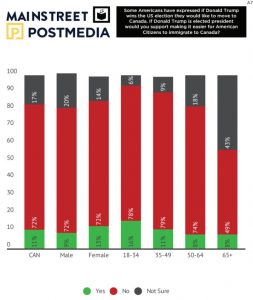Pubertal Antics of Hong Kong Separatist Legislators

A pro-China protester carries a printout depicting newly elected Hong Kong lawmaker Sixtus Leung representing a traitor during a demonstration outside the Legislative Council in Hong Kong Wednesday, Oct. 26, 2016. More unruly scenes erupted in Hong Kong?s legislature Wednesday as two newly elected lawmakers defied an order barring them from retaking their oaths after being disqualified earlier for insulting China. (AP Photo/Kin Cheung)
Three weeks ago, several radical separatist ‘Localist’ legislators recently elected to Hong Kong’s Legislative Council (LegCo) put on a pubertal show of utter contempt for the Hong Kong SAR and the mainland.
Youthful would-be legislators Yau Wai-ching and Sixtus “Baggio” Leung altered their parliamentary oaths to uphold Hong Kong’s Basic Law with Lau saying she “(bore) true allegiance to the Hong Kong nation”. When told to repeat the oath correctly, she resorted to abusing the name of the People’s Republic using foul words and a derogatory war-time Japanese term for China ‘Chee-na”. Not to be out done, Sixtus Leung draped a banner declaring “Hong Kong is NOT China” and again uttered the disparaging word ‘Chee-na’. Lau Siu-lai read her pledge in slow motion, taking 10 minutes to finish the 77-word oath while other pro-secessionists tore up prop copies of the Basic Law.
In the face of such an dispicable affront to Hong Kong dignity and Chinese sovereignty, China’s National People’s Congress (NPC) took the unprecedented step of blocking Ms Yau and Mr Leung from taking their oaths a second time after being initially disqualified by the LegCo President. The NPC issued an interpretation of a section of the Basic Law on oaths sworn by incoming legislators. Li Fei, deputy secretary-general of the NPC Standing committee told reporters at a subsequent Beijing news conference, “breaking ‘One Country, Two Systems’ is violating the law, not voicing a political view…There will be no leniency (for the perpetrators)”.
Lau and Leung exemplify a new breed of radicalized Hong Kong youths who see little hope for their future just as their mainland cousins enjoy continuing improvements in their daily lives and China as a country leapfrogs over other countries in almost every facet of economy, society, and even politics. As a pro-Localist journalist wrote in hkej.com last February, “(There is) a growing sense of hopelessness engulfing Hong Kong people”. Dissatisfaction with their economic plight easily translates into grievances against the Hong Kong government and the existing process for electoral democracy in the enclave.
Especially in the wake of the “Occupy Central” demonstrations that brought key thoroughfares and districts in Hong Kong to a standstill in 2014, groups with Localist sympathies have since galvanized into political parties dedicated to full-fledged Hong Kong independence either now or in the post ‘One Country, Two Systems’ world after 2047. They include Hong Kong Indigenous, Hong Kong National Party, and Youngspiration with the latter and Demosisto, another radical grouping, calling for a referendum on independence after “One Country, Two Systems” ends. Still others advocate a return to British rule such as the Hong Kong Independence Party and the Alliance of Resuming British Sovereignty over Hong Kong and Independence.
But, these groups represent an extremist fringe of the populace. A survey conducted by the Chinese University of Hong Kong (CUHK) over the summer showed only 17.4% of respondents sympathetic to the prospect of becoming independent after 2047 and a mere 3.6% stating that independence is “possible”. Opponents of Hong Kong independence cite several reasons for the improbability of actual secession: For one thing, Article I of the Basic Law stipulates Hong Kong is an inalienable part of China and so advocacies for independence have no legal basis. Second, Most Hong Kongers trace their ancestry and kinship to the mainland not to mention sharing language and culture. Nathan Law Kwun-chung of Demosisto and Edward Leung of Hong Kong Indigenous, for instance, were both born on the mainland.
In practical terms, devoid of any major natural resources, Hong Kong is overwhelmingly dependent on the mainland for the basic necessities of life – food, water and electricity. In fact, the produce and meats that Hong Kongers consume are some of the most premium products exported from neighbouring Guangdong and other provinces. In terms of economic growth, Hong Kong benefits immensely from its close association with Shenzhen across the border and other manufacturing and high-tech hubs in the Pearl River Delta. The mainland is Hong Kong’s largest trading partner and thus crucial to Hong Kong’s continued prosperity. As China gradually supplants the US as the global superpower, movements to distance Hong Kong from the mainland can only be folly.
Most important, with memories of the Century of Humiliation still fresh in the minds of the Chinese people, no central Chinese government, whether Communist or of any other ilk, can/will tolerate any moves toward secessionism on the part of Taiwan, Hong Kong, Tibet or Xinjiang. In Hong Kong’s case, a People’s Liberation Army (PLA) garrison is stationed in the heart of the city. You can be sure with the mainland’s growing political wisdom and economic might coupled with military strength and prowess, any armed rebellion, let alone referenda, for formal Hong Kong independence will be put down with prejudice.
Canadian Immigration Website Crashes After Trump Win
As election night results showed a win for Donald Trump, nervous Americans considering an exit strategy apparently crashed Canada’s immigration website. The site has been working intermittently throughout the night with high levels of traffic.
Canadian Prime Minister Justin Trudeau entertained the idea of welcoming Americans fleeing a Trump presidency in March. But, Canadians are not keen on the idea.
A poll released Tuesday shows the overwhelming majority of the nation is opposed to easing immigration policies in the event of a Trump victory. The poll, conducted by Mainstreet Research and Postmedia Network Inc., also reveals that most Canadians would support Clinton for U.S. president.
“This election has been quite divisive south of the border and many Canadians are anxious about the outcome on Tuesday,” said Quito Maggi, president of Mainstreet Research.
– Huffington Post
OBOR Could Be Environmental Superhighway: Study
The “New Road for Telecoupling Global Prosperity and Ecological Sustainability” report by Michigan State University scholars states China’s ambitious One Belt One Road (OBOR) initiative, involving more than 100 countries and international organizations, could create routes filled with opportunity.
The authors use the new integrated telecoupling framework, which allows scientists to understand and govern the interconnections of socioeconomic and environmental issues that span the globe. The approach factors in changes that ripple across regions, accounting for what otherwise might be unforeseen and unintended consequences.
The stakes are particularly high with environmental concerns such as climate change, air and water pollution and food security demanding immediate solutions, said Jack Liu, director of the Center for Systems Integration and Sustainability (CSIS) and the Rachel Carson Chair in Sustainability at Michigan State.
“Environmental challenges like climate change; biodiversity loss; desertification; air, water, soil, and ocean pollution; and natural disasters rarely honor man-made borders, so now is the time to start building mechanisms to create environmental wins. But this also requires a sophisticated way of understanding the impacts that come with change,” he said.
The report recommends roles for groups like the United Nations in climate adaptation and mitigation, poverty alleviation and other areas. The group also suggests building infrastructure to allocate people, resources and energy equitably and efficiently; boost technological transfer with cultural and religious exchanges, and so on.
– Xinhua




